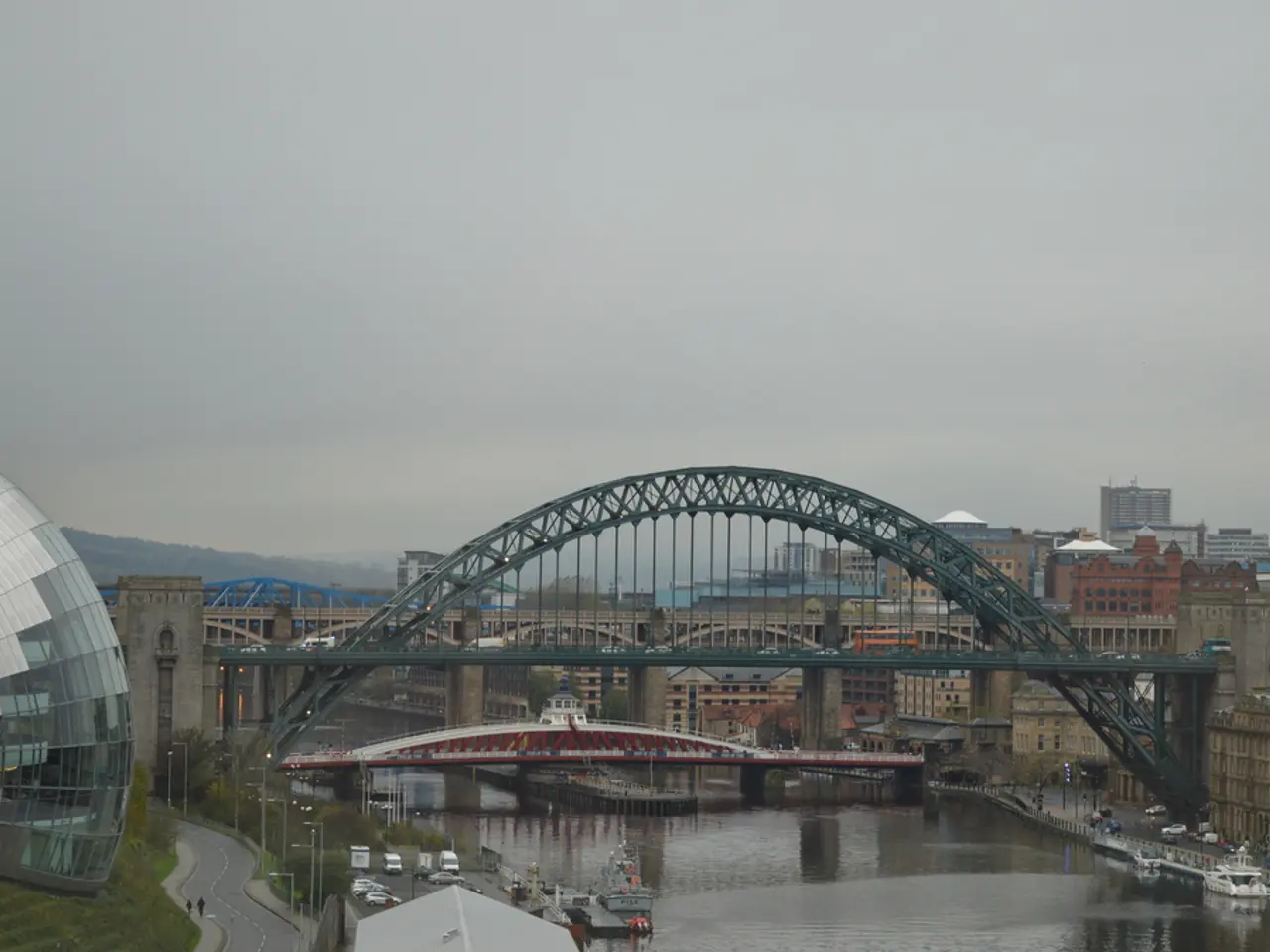Waterbom Bali marks substantial environmental milestones as it progresses towards achieving net-zero emissions by 2033.
Waterbom Bali, the renowned waterpark in Asia, has made impressive strides in its pursuit of becoming the world's most sustainable waterpark. In 2024, the park recycled an impressive 2,769 cubic meters of wastewater through an upgraded sewage treatment plant, marking just one of many achievements in its sustainability journey [1].
The park's commitment to waste reduction is evident, with only 1.2% of total park waste sent to landfill between January and March 2025. An astounding 98.8% of the waste generated onsite was either recycled or composted, a significant step towards their zero-waste ambitions [1]. Organic waste is processed into compost onsite, supporting the regeneration of the park’s gardens and further reducing environmental impact [1][2].
Energy efficiency is another key focus for Waterbom Bali. The installation of 123.54 kilowatt-peak of new solar capacity in 2024 has reduced dependency on fossil fuels, lowering the park’s carbon footprint [2]. The park achieved 100% renewable electricity in the same year, demonstrating its commitment to sustainable energy solutions [2].
Industry recognition for Waterbom Bali's sustainability efforts has been forthcoming. In 2023, the park was honoured with the prestigious Grand Title Award for Sustainability and Social Responsibility at the 2023 Pacific Asia Travel Association (PATA) Gold Awards. The park was also recognised for the 9th year in a row as the #1 Waterpark in Asia by TripAdvisor's Travellers' Choice awards [2].
Waterbom Bali's approach to sustainability is holistic, encompassing zero-waste operations, renewable energy initiatives, resource conservation, community and cultural engagement, and collaborative partnerships [1][2]. The park's CEO, Sayan Gulino, emphasises that sustainability is deeply embedded in the organization's identity, with every operational decision rooted in environmental responsibility and respect for Bali’s unique ecosystem [1][2].
The park's latest Sustainability Impact Report, released in 2024, highlights progress in renewable energy, water conservation, waste reduction, and community engagement. Waterbom Bali's journey to net zero by 2033 serves as a model for the tourism industry, demonstrating a clear, measurable, and integrated approach to sustainability [1][2].
With 652 staff training sessions focused on environmental education and sustainable operations, 386 people participating in the Seed of Thought sustainability education program, a 72% increase from 2019, and 419 people employed at Waterbom Bali, with 89% being native Balinese, the park's commitment to its local community is evident [1][2].
Waterbom Bali's commitment to sustainability extends beyond its operations. The park offers a range of premium quality food and drink options, with all dishes made fresh daily from locally sourced ingredients [3]. The park's environmental responsibilities include nurturing, encouraging, and developing an environmentally responsible culture amongst their team members and guests.
As Waterbom Bali continues to make strides towards its net-zero emissions target of 2033, it serves as a shining example of how eco-tourism can thrive while prioritising sustainability, water efficiency, nature-based solutions, and a sustainable lifestyle [1][2].
References: [1] Waterbom Bali (2024). 2024 Sustainability Impact Report. [2] Waterbom Bali (2023). Tri Hita Karana Super Platinum III Award. [3] Waterbom Bali (n.d.). Food and Beverage. Retrieved from https://waterbombalipedia.com/food-and-beverage/ [4] Waterbom Bali (n.d.). Collaborative Partnerships. Retrieved from https://waterbombalipedia.com/collaborative-partnerships/ [5] Waterbom Bali (n.d.). Scope 1, Scope 2, and Scope 3. Retrieved from https://waterbombalipedia.com/scope-1-scope-2-and-scope-3/
Related topics: eco-tourism, jobs, recycling, water efficiency, water security, nature-based solutions, sustainable lifestyle, science-based targets, livelihoods, Scope 3, Scope 1, Scope 2.
- Waterbom Bali's 2024 Sustainability Impact Report highlighted progress in renewable energy, demonstrating a clear, measurable, and integrated approach to sustainability.
- The park's commitment to sustainability extends beyond its operations, nurturing an environmentally responsible culture amongst team members and guests.
- In 2024, Waterbom Bali recycled an impressive 2,769 cubic meters of wastewater, marking one of many achievements in its sustainability journey.
- The park's CEO, Sayan Gulino, emphasizes that sustainability is deeply embedded in the organization's identity, with every operational decision rooted in environmental responsibility and respect for Bali’s unique ecosystem.
- Waterbom Bali achieved 100% renewable electricity in 2024, a significant step towards its ambition to become a world-renowned sustainable waterpark.
- Energy efficiency is another key focus for Waterbom Bali, with the installation of 123.54 kilowatt-peak of new solar capacity in 2024 lowering its carbon footprint.
- With 652 staff training sessions focused on environmental education and sustainable operations, 386 people participating in the Seed of Thought sustainability education program, and 419 people employed at Waterbom Bali, with 89% being native Balinese, the park's commitment to its local community is evident.
- The tourism industry can learn from Waterbom Bali's journey to net zero by 2033, as it serves as a model for eco-tourism that thrives while prioritizing sustainability, water efficiency, nature-based solutions, and a sustainable lifestyle.
- Site-generated organic waste is processed into compost onsite, supporting the regeneration of the park’s gardens and further reducing environmental impact, aligning with the principles of sustainability and environmental science.




